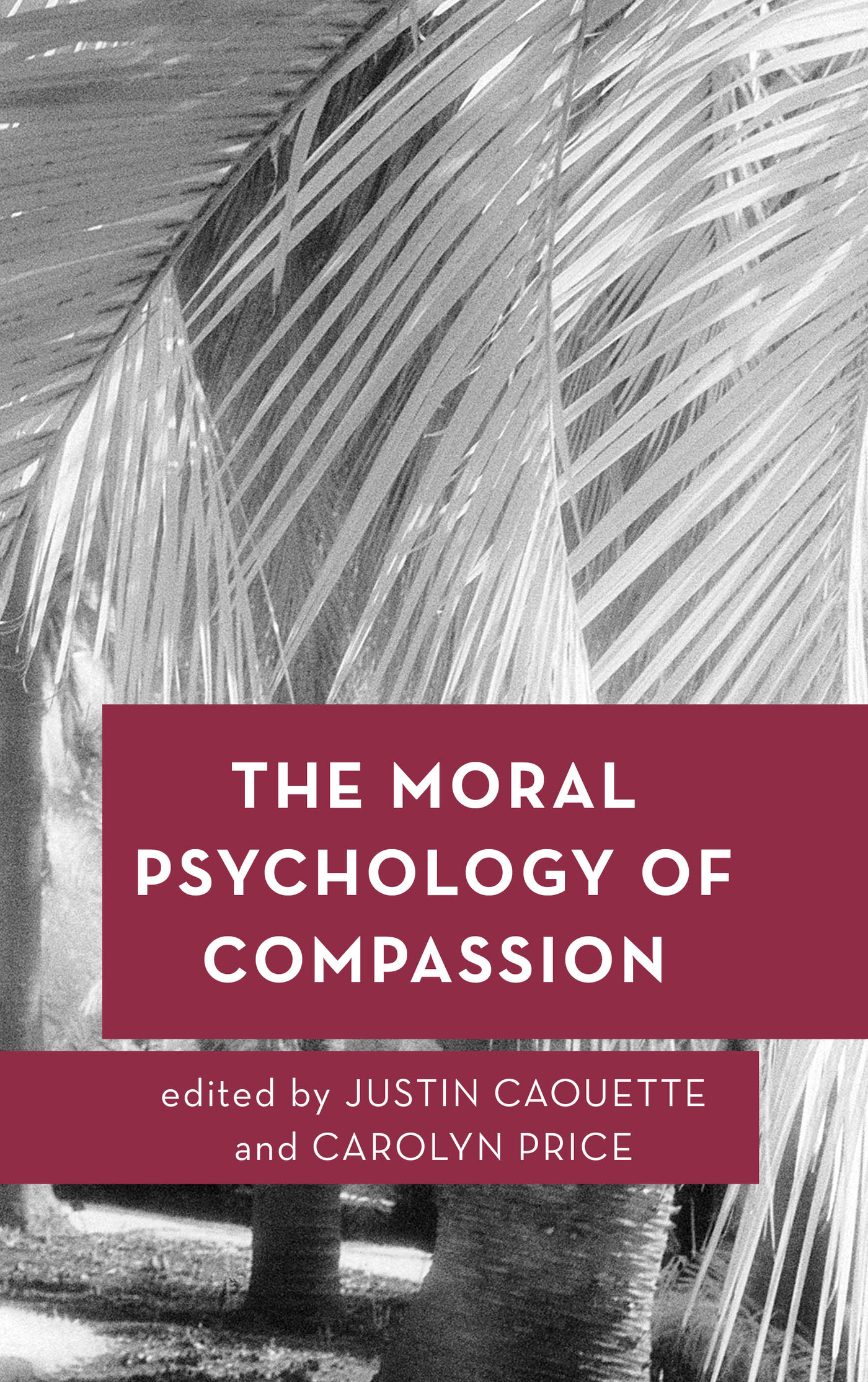The Moral Psychology of Compassion
Moral Psychology of the Emotions
Series Editor: Mark Alfano, Associate Professor, Department of Philosophy,
Delft University of Technology
How do our emotions influence our other mental states (perceptions, beliefs, motivations, intentions) and our behavior? How are they influenced by our other mental states, our environments, and our cultures? What is the moral value of a particular emotion in a particular context? This series explores the causes, consequences, and value of the emotions from an interdisciplinary perspective. Emotions are diverse, with components at various levels (biological, neural, psychological, social), so each book in this series is devoted to a distinct emotion. This focus allows the author and reader to delve into a specific mental state, rather than trying to sum up emotions en masse. Authors approach a particular emotion from their own disciplinary angle (e.g., conceptual analysis, feminist philosophy, critical race theory, phenomenology, social psychology, personality psychology, neuroscience) while connecting with other fields. In so doing, they build a mosaic for each emotion, evaluating both its nature and its moral properties.
Other titles in this series:
The Moral Psychology of Forgiveness, edited by Kathryn J. Norlock
The Moral Psychology of Pride, edited by Adam J. Carter and Emma C. Gordon
The Moral Psychology of Sadness, edited by Anna Gotlib
The Moral Psychology of Anger, edited by Myisha Cherry and Owen Flanagan
The Moral Psychology of Contempt, edited by Michelle Mason
The Moral Psychology of Disgust, edited by Nina Strohminger and Victor Kumar
Forthcoming titles in the series:
The Moral Psychology of Curiosity, edited by Ilhan Inan, Lani Watson, Dennis Whitcomb, and Safiye Yigit
The Moral Psychology of Regret, edited by Anna Gotlib
The Moral Psychology of Gratitude, edited by Robert Roberts and Daniel Telech
The Moral Psychology of Compassion
Edited by Justin Caouette and Carolyn Price

London New York
Published by Rowman & Littlefield International, Ltd.
Unit A, Whitacre Mews, 26-34 Stannary Street, London SE11 4AB
www.rowmaninternational.com
Rowman & Littlefield International, Ltd. is an affiliate of Rowman & Littlefield
4501 Forbes Boulevard, Suite 200, Lanham, Maryland 20706, USA
With additional offices in Boulder, New York, Toronto (Canada), and Plymouth (UK)
www.rowman.com
Selection and editorial matter 2018 by Justin Caouette and Carolyn Price.
Copyright in individual chapters is held by the respective chapter authors.
All rights reserved. No part of this book may be reproduced in any form or by any electronic or mechanical means, including information storage and retrieval systems, without written permission from the publisher, except by a reviewer who may quote passages in a review.
British Library Cataloguing in Publication Information Available
A catalogue record for this book is available from the British Library
ISBN: HB 978-1-78660-418-7
Library of Congress Cataloging-in-Publication Data Available
ISBN: 978-1-78660-418-7 (cloth: alk. paper)
ISBN: 978-1-78660-420-0 (electronic)
 TM The paper used in this publication meets the minimum requirements of American National Standard for Information SciencesPermanence of Paper for Printed Library Materials, ANSI/NISO Z39.48-1992.
TM The paper used in this publication meets the minimum requirements of American National Standard for Information SciencesPermanence of Paper for Printed Library Materials, ANSI/NISO Z39.48-1992.
Printed in the United States of America
Acknowledgments
The editors would like to thank all the contributors to this volume for their hard work and forbearance as we put the volume together. We would also like to thank Mark Alfano, Moral Psychology of the Emotions Series Editor, and Isobel Cowper-Coles and Natalie Bolderston at Rowman & Littlefield International for their support and encouragement throughout the project.
Introduction
Carolyn Price and Justin Caouette
At first sight, it is hard to imagine a full account of our moral and social lives that has nothing to say about compassion. The moral value of compassion is emphasized in many religious traditions; and many moral theorists have taken compassion to play a foundational role in our moral lives. Yet there is no agreed account of what compassion is. There is disagreement, too, about compassions valueabout how, exactly, it contributes to morally admirable or flourishing lives; what its limitations and dangers might be; and whether there are other, preferable sources of moral motivation. Finally, assuming that compassion is indeed something to be valued, we might wonder how it can be cultivated. In this introduction, we shall sketch some of the background to these debates, before introducing the chapters that follow.
What is compassion?
The term compassion can name different things: it is the name of an emotion, but also of a character trait and (it might be thought) a virtue too. Much current philosophical debate on compassion focuses on defining compassion, conceived as an emotional response.
Perhaps the most important and interesting of these questions concerns the relationship between compassion and empathy. On the one hand, there is broad agreement that empathy and compassion are distinct phenomena. Empathy (more precisely, affective empathy) is often thought to involve one person sharing or matching anothers emotion or mood, or at least what they imagine the other persons emotion or mood to be (Darwall 1998; Maibom 2014; Coplan 2011a; 2011b). Hence, one can empathize with anothers sorrow or distress, but also with their joy, their gratitude, or their admiration. Compassion, in contrast, is usually (if not universally) taken to be a response to anothers suffering; Moreover, unlike empathy, compassion implies a concern for the sufferer and hence a desire or wish to help them.
Nevertheless, even if compassion and empathy are not the same, it might be suggested that compassion does at least require empathy. This suggestion has been the source of some debate in the philosophical literature on compassion, and it bears on a number of further questions. One of these questions concerns the nature of the distress experienced by the compassionate subject. It is sometimes suggested that the compassionate subject suffers with the sufferer: they feel what they imagine the sufferer to feel. However, some theorists have denied this: in compassion, the thought goes, one suffers for the other person, but one does not suffer what they suffer. A third question concerns the scope or reach of compassion. If compassion requires empathy, this might be taken to imply that people will be unable to feel compassion for beings very different to themselvesnon-human animals, for example. (See Abbate, this volume.)
As Karsten Struhl (this volume) explains, Buddhist thought offers a rather different perspective on the relationship between compassion and empathy. For in Buddhist thought, compassion is not to be understood as an emotional response elicited by the suffering of some particular individual, but as a response to the suffering of all sentient beings. It arises, not from one persons ability to empathize with anothers distressa notion that presupposes a distinction between self and otherbut from the recognition that there is no such distinction. Hence universal compassion, as Buddhists understand it, does not require empathy; rather, it implies overcoming our attachment to the illusion of self (Struhl, this volume).

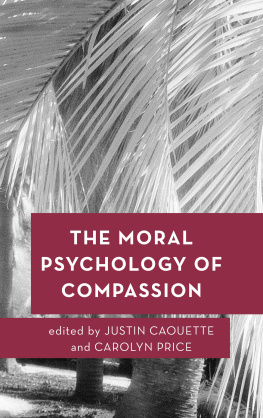

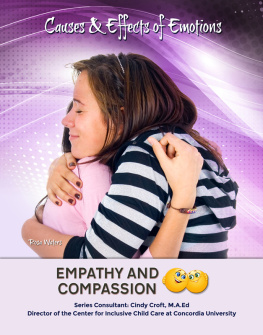


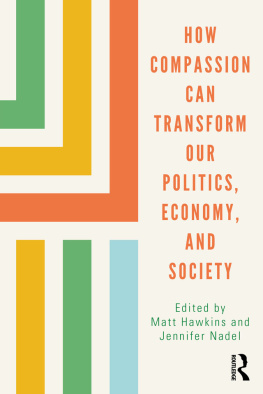
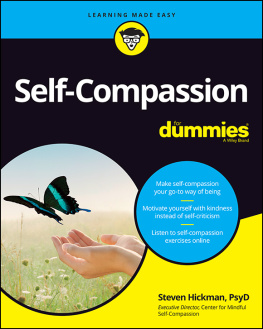

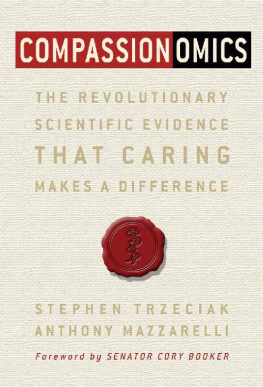
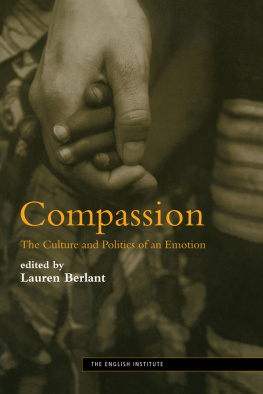
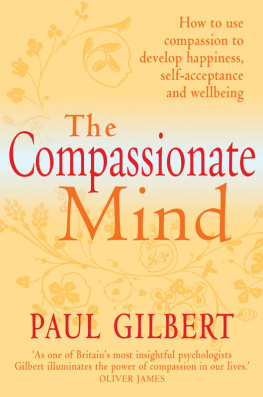
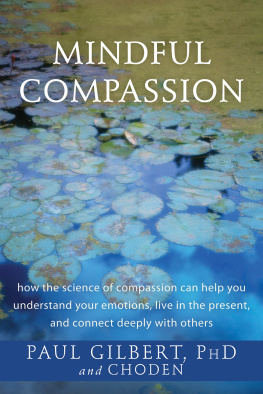

 TM The paper used in this publication meets the minimum requirements of American National Standard for Information SciencesPermanence of Paper for Printed Library Materials, ANSI/NISO Z39.48-1992.
TM The paper used in this publication meets the minimum requirements of American National Standard for Information SciencesPermanence of Paper for Printed Library Materials, ANSI/NISO Z39.48-1992.